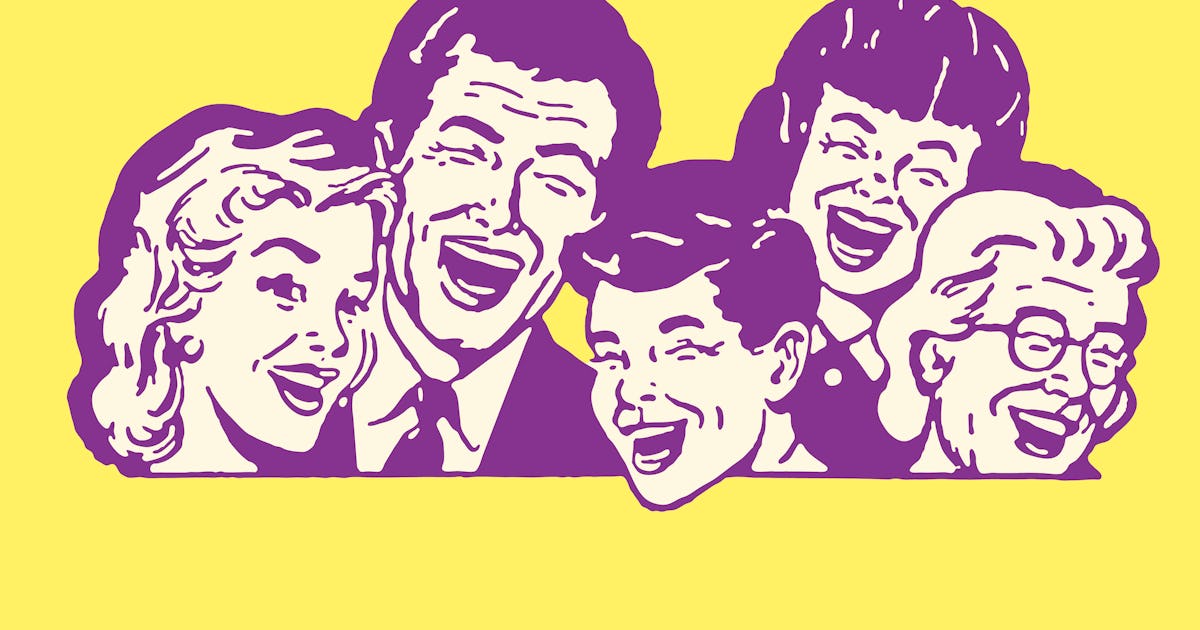Laughter is a universal human expression recognized for its profound impact on both mental and emotional well-being. Numerous studies and expert analyses highlight the various psychological benefits of laughter, illustrating its role in stress relief, emotional regulation, and social connections.
Stress Reduction and Emotional Resilience
:max_bytes(150000):strip_icc()/Health-benefits-of-humor-and-laughter-5101137-V1-aaf604df8e6c4c96b9bbcb1de7d6606e.png)
One of the most significant psychological effects of laughter is its ability to reduce stress. Laughter triggers the release of neurotransmitters such as endorphins, which are natural painkillers and mood elevators[10]. Research indicates that during laughter, levels of cortisol, the primary stress hormone, decrease. This reduction in cortisol contributes to an overall calming effect, allowing individuals to feel more relaxed and less anxious[5][7]. Laughter functions as a natural buffer against stress, providing a necessary distraction from challenging situations and enabling a refreshed perspective on problems[6][9].
Laughter also enhances emotional resilience, helping individuals cope with adversity. By fostering a more positive outlook, humor allows people to view difficult circumstances as less threatening. This reframing can ultimately promote emotional recovery[9] and increase a person’s ability to navigate life's challenges with a lighter heart. A report highlighted by the Mayo Clinic supports this notion, suggesting that laughter can act as a coping mechanism that lightens the mental load[1].
Enhanced Mood and Well-being

Engaging in laughter not only boosts immediate mood but also fosters long-term psychological health. The psychological landscape is positively altered as laughter stimulates the release of dopamine and serotonin, further promoting feelings of happiness and satisfaction[8][10]. These neurochemicals are essential for combating feelings of depression and anxiety, making laughter an effective strategy for individuals dealing with mental health challenges[8].
Furthermore, laughter has been associated with improved overall well-being. Studies have shown that regular laughter correlates with lower incidences of depression and anxiety-related disorders[4][11]. The benefits extend beyond individual mood enhancement to fostering a general sense of well-being that can lead to greater life satisfaction.
Social Connectivity and Relationships
Laughter plays a critical role in social bonding. Shared laughter fosters connections among individuals, breaking down barriers and promoting a sense of community[6][9]. The ability to laugh together creates an environment where communication can thrive, facilitating more positive interactions. This social bonding is particularly vital in therapeutic settings, where the atmosphere of shared humor can enhance open dialogue and reduce feelings of isolation[2][4].
The infectious nature of laughter further contributes to its role as a social lubricant. When individuals laugh together, it reduces tension and can help resolve conflicts, making it easier to navigate difficult interpersonal dynamics[5][8]. Researchers have indicated that experiencing laughter collaboratively can increase inter-personal closeness, fostering trust and understanding among peers[9] and enriching the quality of relationships.
Cognitive Benefits and Creativity
Beyond its emotional impacts, laughter also has cognitive benefits. Engaging with humor can enhance creativity and problem-solving skills. By promoting a positive mindset, laughter encourages more flexible thinking, allowing individuals to approach challenges with an open and innovative perspective[9] . Moreover, studies suggest that humorous contexts can improve memory retention, as laughter aids in encoding information more effectively[8][10].
Therapeutic Applications
In clinical settings, laughter therapy has emerged as a novel approach to improve mental health outcomes. This therapeutic intervention incorporates simulated laughter exercises and comedic activities within a structured format to harness the psychological benefits of laughter[2][10]. Research has demonstrated that laughter therapy can alleviate symptoms of depression and anxiety, showcasing its role as a complementary treatment to more traditional forms of psychotherapy[11]. Furthermore, programs such as laughter yoga combine laughter exercises with yogic breathing, which have shown promise in enhancing mental health and reducing stress[4][6].
Conclusion
The psychological effects of laughter are vast and multifaceted, offering significant benefits to mental well-being. Its ability to reduce stress, improve mood, foster social bonds, enhance cognitive functioning, and serve therapeutic roles underlines the power of humor in daily life. Integrating laughter into one’s routine not only cultivates a more joyful existence but also contributes to a healthier psychological state, reinforcing the age-old adage that laughter truly is the best medicine. By understanding and embracing these benefits, individuals can enhance their resilience and quality of life in myriad ways.
Get more accurate answers with Super Pandi, upload files, personalized discovery feed, save searches and contribute to the PandiPedia.
Let's look at alternatives:
- Modify the query.
- Start a new thread.
- Remove sources (if manually added).